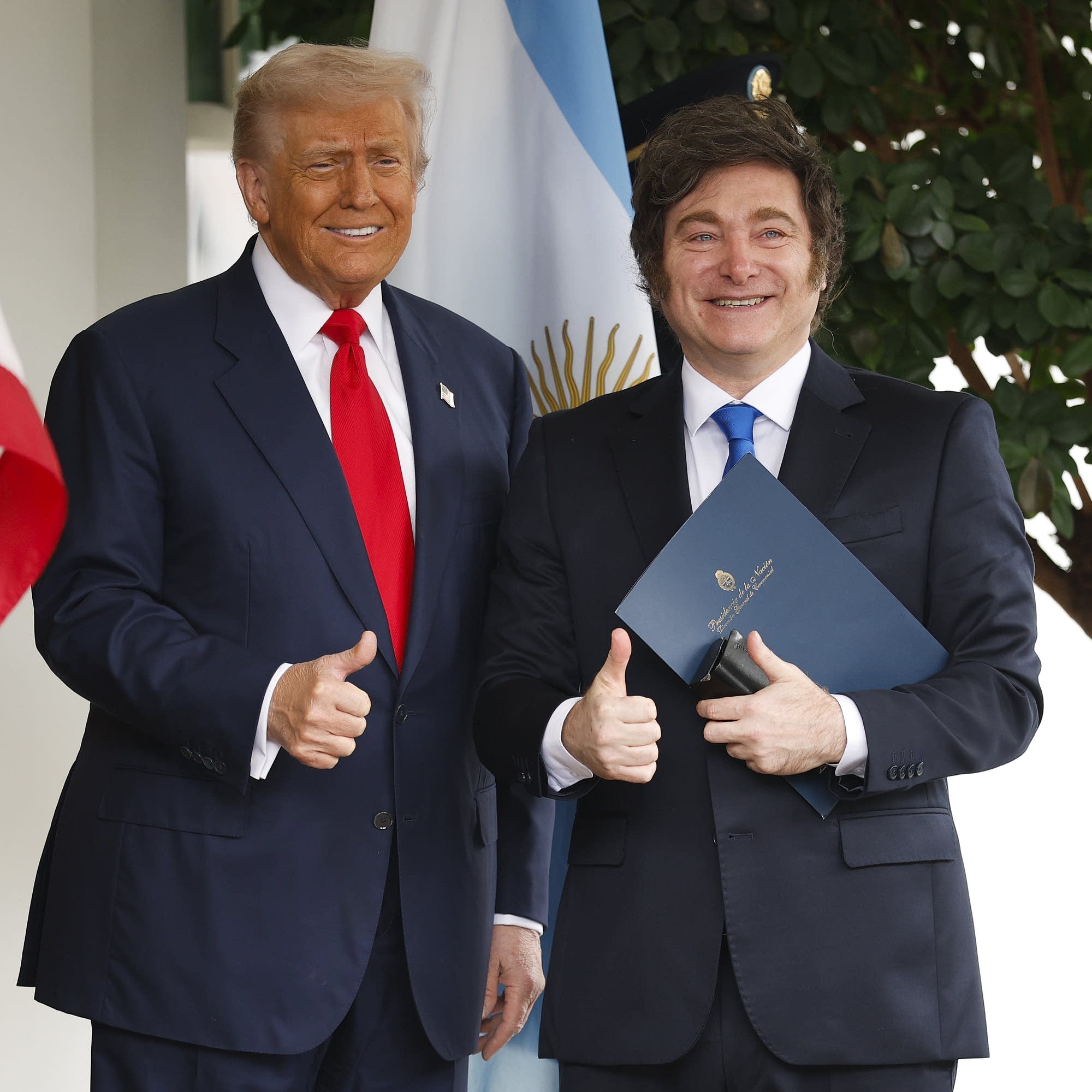
🤖 AI Summary
Overview
This episode explores the U.S. government's decision to invest billions in propping up the Argentine peso ahead of elections, delves into the economic impact of AI investments on the stock market, examines Trump's approach to industrial policy and state capitalism, and discusses the legal complexities of prediction markets in sports betting.
Notable Quotes
- The U.S. is just becoming extremely siloed. It's talking about making America great again, but we know that's not the case if we don't have a proper industrial strategy.
- Mariana Mazzucato, on the risks of the U.S. losing global relevance.
- Even Sam Altman, the CEO of OpenAI, said this summer, 'We're in a bubble.'
- Kai Ryssdal, on the potential overinvestment in AI.
- The economy doesn't stop, I say? The total federal debt topped $38 trillion for the first time yesterday.
- Kai Ryssdal, highlighting the growing U.S. debt.
💵 U.S. Intervention in Argentina's Currency Crisis
- The Trump administration is investing up to $40 billion to stabilize the Argentine peso, which has lost half its value this year.
- Mark Sobel explains that the peso's decline stems from a lack of market confidence in its sustainability, leading to inflation and higher import prices in Argentina.
- The U.S. is using currency swaps to provide dollars to Argentina, allowing them to buy pesos and prop up its value.
- Experts like Steve Kamen warn of repayment risks, as Argentina has a history of defaults and owes significant debts to other agencies like the IMF.
🤖 AI Investment and Stock Market Dynamics
- AI investments have driven significant growth in the S&P 500, with companies like Nvidia contributing disproportionately to returns.
- Ronnie Sotka notes that AI investment added 1.1% to economic growth in the first half of the year, surpassing consumer spending.
- Concerns are rising about overinvestment in AI, with skeptics like Gary Marcus warning of a potential bubble. Marcus likens the situation to a cartoon character running off a cliff without realizing it.
- Major tech companies like Microsoft, Google, and Amazon are profiting from selling infrastructure for AI development, even if the bubble bursts.
🏭 Trump's Industrial Policy and State Capitalism
- The Trump administration's industrial strategy includes taking equity stakes in companies like Intel and rare earth firms, raising questions about state capitalism.
- Mariana Mazzucato argues that while the U.S. has historically had an active industrial strategy, Trump's approach lacks safeguards and strategic alignment.
- She highlights the risks of dismantling institutions like the NIH and ARPA-E, which have historically driven innovation in sectors like health and energy.
- Mazzucato warns that the U.S. could face global irrelevance without a coherent industrial strategy, especially as China strengthens its international alliances.
🎲 The Rise of Prediction Markets in Sports Betting
- DraftKings and FanDuel are entering the prediction market space, which allows betting on events under federal commodities rules, bypassing state gambling regulations.
- Analyst Chad Bynan notes that prediction markets have seen explosive growth, threatening traditional sportsbook operators.
- Legal challenges persist, as some states have warned companies not to offer sports prediction markets, creating tension between state and federal regulations.
- Business law professor John Holden describes the current landscape as a wild, wild time,
with ongoing lawsuits over the legality of these practices.
🌊 Disaster Cleanup Challenges in North Carolina
- A year after Hurricane Helene, federal contractors have faced criticism for damaging ecosystems during debris removal efforts.
- Conservationists like Hans Lohmeyer highlight the importance of preserving riverbank vegetation to prevent flooding and protect wildlife.
- Neighboring counties that opted for state contractors saw better environmental practices but faced delays in FEMA reimbursements.
- Natalia Santana-Pollard emphasizes the psychological impact of disaster cleanup, noting the importance of balancing speed and environmental care.
AI-generated content may not be accurate or complete and should not be relied upon as a sole source of truth.
📋 Episode Description
The U.S. just agreed to spend $20 billion on a currency exchange with Argentina. The hope? To put a lid on inflation before Javier Milei, an ally of President Trump, is up for re-election. How does that work? What’s in it for the U.S.? Later in this episode: AI firms juice the stock market, an economist explains Trump’s flavor of state capitalism, and sports betting sites push the boundary between state and federal regulation.
Every story has an economic angle. Want some in your inbox? Subscribe to our daily or weekly newsletter.
Marketplace is more than a radio show. Check out our original reporting and financial literacy content at marketplace.org — and consider making an investment in our future.
